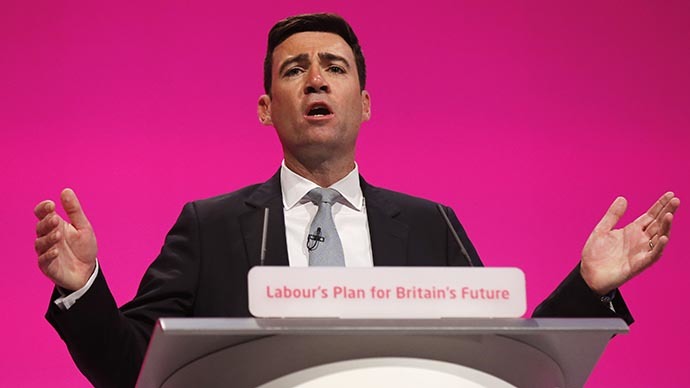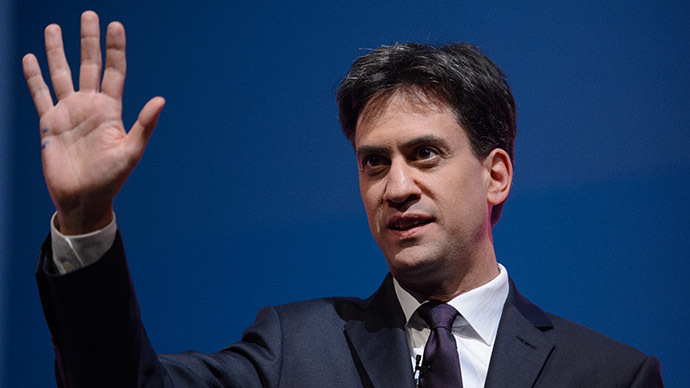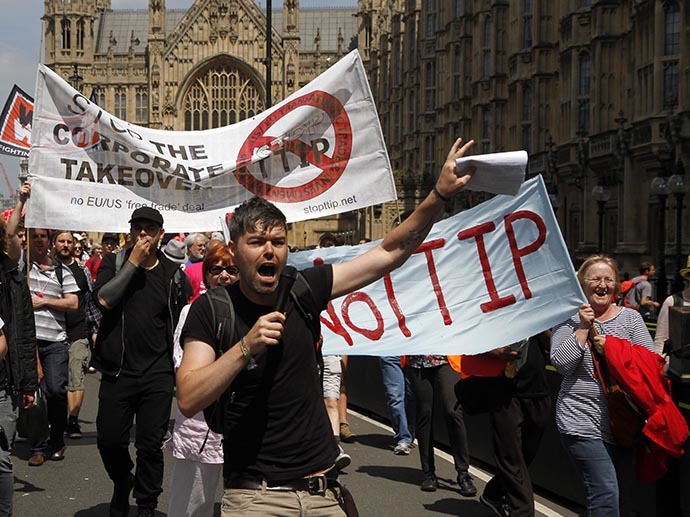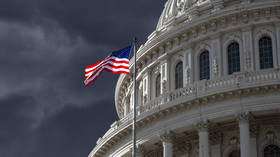Labour to block TTIP NHS sell-off as leader Miliband plummets in polls

Labour has backed an anti-privatization bill that excludes the NHS from the Transatlantic Trade and Investment Partnership (TTIP). Trade unionists and academics warn the cross-border deal could lead to the irreversible privatization of the health service.
Labour’s backing of the legislation comes as Ed Miliband faces increased pressure over a record low personal rating in the polls.
The anti-privatization bill would exclude the National Health Service (NHS) from TTIP, a bilateral EU-US trade deal that has garnered criticism from trade unions, academics and campaigners in Britain and other EU states.
Critics caution TTIP could lead to the permanent privatization of NHS services by prioritizing profit-seeking firms over domestic lawmakers.
Once finalized, UK union Unite warns the deal would allow US corporations, or any firm affiliated with American investors, to sue the British government if it ever embarked on an effort to place privatized health services back under public ownership. Such legal proceedings would be conducted in a secret court setting, the union says.
Read more:Covert US-EU trade deal could make NHS privatization irreversible – trade unions
Labour has intensified its anti-privatization stance on the NHS in the wake of rising concern over Miliband’s dwindling popularity. A recent YouGov survey indicated the Labour chief's support ratings have plunged beneath those of Liberal Democrat Leader Nick Clegg.

Current polls reveal the health service is a top concern for voters, many of whom associate Labour with its protection. As the countdown to the 2015 general election begins, the NHS is predicted to feature heavily in the party's campaign strategy.
Shadow Health Secretary Andy Burnham is expected to announce a vote on Labour MP Clive Efford’s anti-privatization bill on November 21. The bill will be heavily endorsed by Miliband and other senior party figures.
Burnham officially backed Efford's proposed legislation during a visit to Rochester on Monday, where he spoke in support of Labour’s by-election candidate Naushabah Khan.
Addressing Labour supporters gathered in Rochester on Monday, Khan publicly pledged to“vote for Clive Efford's bill to stop the privatization of our NHS.”
@andyburnhammp and @naushabahkhan talk about the problems of privatising the NHS in #RochesterandStroodpic.twitter.com/enT681B1s8
— Labour South East (@SELabour) November 3, 2014
The anti-privitization bill is devised to remove the health service from the TTIP agenda, and repeal a number of coalition NHS reforms. In particular, it will repeal ‘section 75’ rules that force the compulsory tendering of NHS contracts, terminate the freedom that permits NHS hospitals to generate substantial earnings from treating private patients, and place the responsibility for the NHS back in the hands of the secretary of state.
The British government backs TTIP, claiming it could add billions to the economy by reducing regulations and other barriers to trade. It denies allegations the deal could result in the permanent privatization of the NHS, and rejects the argument it is driven by the agenda of multinational firms bent on increased market deregulation.
But as EU-US negotiations continue, a cross-border EU campaign against TTIP is gathering momentum. Environmentalists, trade unions, and left-wing political parties in Britain and beyond continue to collectively voice their opposition to the deal.















